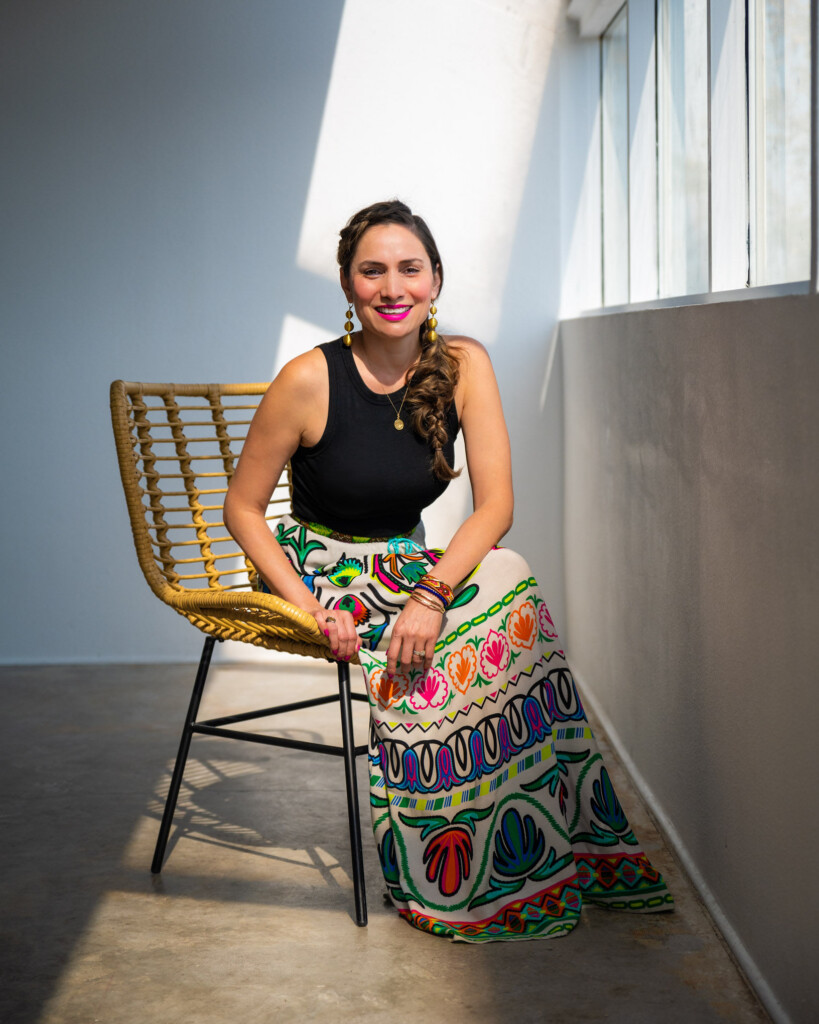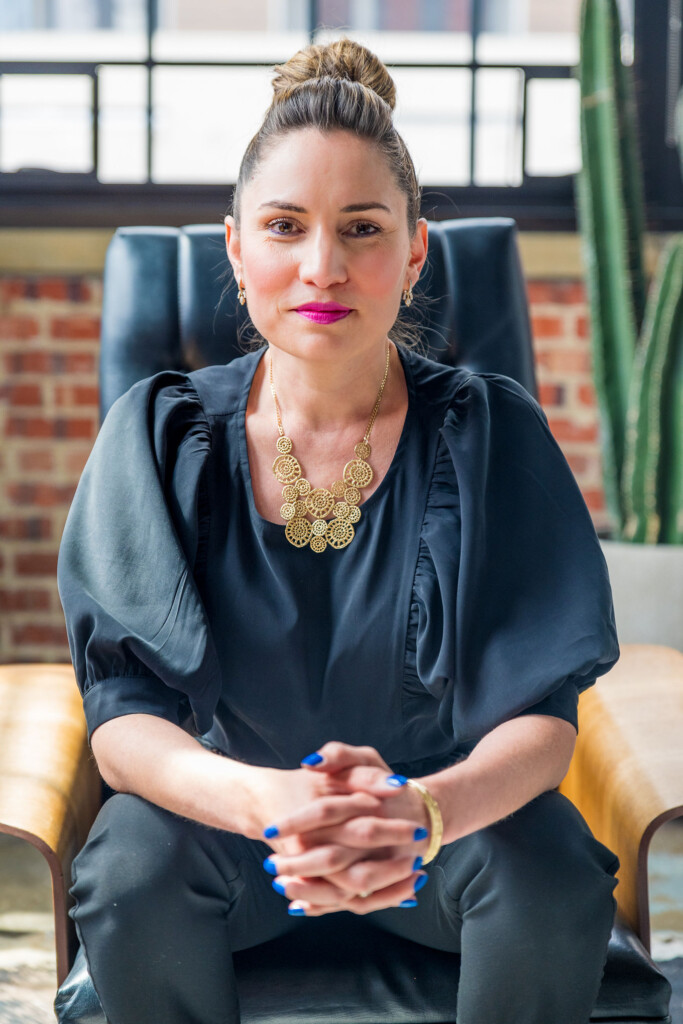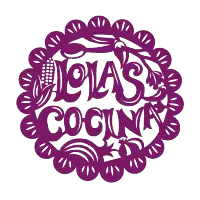The inspiration for Lola’s Cocina came about over ten years ago when I realized that treasured family recipes, some dating back many generations, must not only be experienced through our taste buds, but also preserved in writing. This is when I began to jot down recipes that I learned from family and friends, created myself, or stumbled upon serendipitously.
Upon completion of my graduate studies, I began dedicating much of my time to cooking, testing, and
organizing recipes to share with the future generations.

MEET LOLA
In 2010, the same year I began my graduate studies at San Diego State University, UNESCO recognized Mexican cuisine as a “cultural treasure worthy of preservation.” Coincidence?
With a zeal for Mexican gastronomy and world travel, I focused my graduate thesis research on Oaxaca’s emerging culinary tourism industry. I spent the summer of 2012 immersed in Oaxaca’s unique regional food scene, resulting in an academic work of art (at least to me!) completed in 2013 titled, Culinary Tourism in Mexico: Small Business Perspectives.
My love affair with Mexican culture stems back to childhood where I spent summers with extended family in Acámbaro, Guanajuato, my father’s hometown. Growing up Mexican-American in Southern California, I learned family recipes and spent many hours in the kitchen as a child with my mother, grandmother, and aunts who I consider my culinary mentors. I truly enjoy sharing my knowledge (and food) with others, especially with those interested in Mexican cuisine and culture. Beyond the kitchen, my passion for travel and finding interesting food scenes has taken me throughout the world to Cuba, Croatia, Greece, Morocco, Spain, Portugal, Israel, Colombia, Chile, and Thailand.
Now, more about my professional background…my work experience spans the non-profit, private and public sectors where I have worked on strategic growth and marketing initiatives for small businesses and organizations. I have had the opportunities to work in Taiwan, Washington, D.C., and Spain and remain active in my community by serving as a board member for the National Society of Hispanic MBA’s San Diego chapter and as a marketing committee member for MANA de San Diego, an organization that promotes education and leadership to young Latinas. I have also volunteered for organizations such as the Hispanic Scholarship Fund, Calvary Woman’s Shelter, DC Central Kitchen, and Girl Scouts Spanish Trail Council.
I graduated with a Master of Business Administration (MBA) and a Master of Arts (MA) in Latin American Studies, which freed up some time for me to organize my favorite Mexican recipes for this website!

INTERVIEWS AND PRESS
- Tadin Podcast Interview: Wellness, Supporting Mexican Artisans, and Culinary Tourism with Lola Wiarco Dweck by Chef Carla Contreras. November 16, 2023.
- Q&A with Lola by Green Lady Gardens. September 2022.
- Add These Flavorful Recipes to Your Weeknight Dinner Rotation by Michelle Johnson. 5280 Home. August/September 2021 (also available in print edition).
- 8 Fun Ways to Teach Your Kids Your Latinx Heritage and Culture Every Day by Wanda Medina and Michelle Crouch. Parents Latina. August 10, 2021.
- Just 30 Products Since We All Gotta Eat by Melanie Aman. Buzzfeed. August 6, 2021.
- 9 Latinx-Owned Food Products to Spice Up Your Quarantine Recipes by Andrea Devoto. Thrillist. March 4, 2021.
- How Latinas Can Fight for Equal Pay by Lorraine Nunez. WIN. November 2020
- Beyond Pumpkin Pie: Exciting Thanksgiving Desserts by Terry Ward. AARP. November 16, 2020.
- For This Founder and Food Blogger, Coffee Runs in the Family: Lola Dweck is Making Time for Connection These Days. New York Magazine. September 24, 2019.
- Latinx- and Hispanic-Owned Culinary Businesses to Support Right Now: Discover new brands to add to your kitchen by Amy Shulman. Chowhound.com. September 17, 2020.
- Don’t Go By the Standard. She Owns it Podcast. July 21, 2020.
- ‘Tis the Season to Party. Parents Latina. December/January 2020.
- 4 Foodies to Follow on Instagram and the 37 Kitchen Hacks They Swear By. Parents. December 6, 2019.
- The Lily’s 2019 Gift Guide: The 35 Coolest Women-Made Gifts. The Lily News. October 30, 2019.
- The Best Store Bought Salsas, According to Experts. Thrillist. October 4, 2019.
- These Latina Influencers Will Show You How to Live Your Best Life, Inside and Out by Priscilla Blossom. Oprahmag.com. September 27, 2019.
- We All Grow. Latinos Who Lunch Podcast Episode 65. March 22, 2018.
- 4 Multiracial Families Share How They Make the Holidays Work. Parents Latina. December, 2017.
- 14 Latino Owned Businesses Disrupting the Food Industry. mitú. September 17, 2017.
- Power Moms of the Food World. Red Tricycle. October 3, 2016.
- Every Day Latina Leaders Making a Difference: Meet Lola Dweck. Provoke Weekly. June 16, 2016.
- Keeping Traditions Alive in a Bicultural Home. Super Mamás Podcast Episode 39. April 12, 2016.
- Getting Out of Your Comfort Zone when Raising Bilingual Children with Dolores Dweck. Bilingual Avenue Episode 115. April 5 2016.
- Lola’s Day of the Dead Cooking Class by Alex Dewind. Highlands Ranch Herald, November 15, 2015.
- Where to Eat in Oaxaca, Mexico: An Interview with Dolores Wiarco Dweck. Taste Trekkers Find Dining Podcast Episode 83. May 1, 2014.
- Soup Recipes with Olive Oil: Sopa de Chayote. Recipe shared on the Salud de Paloma Extra Virgen Olive Oil website. February 7, 2014.
- Welcome LOLA! Written in collaboration with Tina Dang, Dang Good Food: A Journey Through Gastronomy. November 27, 2013.
LOLA’S PUBLICATIONS
- Totally Tacos, Tostadas, and Taquitos by Lola Dweck. Yummly. September 3, 2021.
- ¡Bienvenidos a Mexican Paletas! by Lola Dweck. Yummly. July 19, 2021.
- The Beauty of Mexican Breakfast by Lola Dweck. Yummly. June 2, 2021.
- All About Aguas Frescas by Lola Dweck. Yummly. April 8, 2021.
- Five Cooking Schools to Try in Oaxaca. Written in collaboration with Lesley Tellez, The Mija Chronicles. November 3, 2013.
Wiarco, D. (2013). Culinary tourism in Mexico: small business perspectives (master’s thesis).
Abstract:
This exploratory study was designed to help provide an understanding of Mexico’s culinary tourism industry. A review of current literature offers context regarding culinary tourism and the ways it is emerging in various regions. Field research was focused on small businesses operating within Mexico. All data was collected through a combined approach that included participant observation, semi-structured personal interviews with five small business owners, and surveys that were distributed to their clients. All of the business owners in the study operated cooking schools in the southern state of Oaxaca.
The findings present information on each instructor’s background, the successes, areas for improvement, and challenges of operating within Oaxaca’s culinary tourism sector. They also highlight various components of the marketing mix. Interviews revealed that instructors differed in their educational, personal, and professional backgrounds and their reasons for starting a business in this industry were all distinct. Self-identified business strengths ranged from personalized attention offered in class, to the market tour experiences at each school. Common challenges included communication barriers, skill and time constraints, and fluctuations in tourism. Student surveys presented demographic profiles and feedback on satisfaction levels as well as perceptions of the cooking classes. Results revealed that the majority of students who participated in the survey were female, college educated, relatively well-off, and from the United States. Overall satisfaction levels with the five cooking schools were generally positive and students indicated that they enjoyed learning about regional specialties and traditional cooking methods as well as meeting new people.
The study contributes to an area of research that has generated relatively little on the topic of culinary tourism and provides practical insights for small business owners, practitioners, and destination marketers.
To request a full-text PDF version of this thesis, please email [email protected].
Wiarco Dweck, D. & Sasidharan, V. (2013). Regional insights of culinary tourism in Mexico: cooking schools in Oaxaca. International Journal of Hospitality and Tourism.
Abstract:
Culinary tourism is now considered to be one of the fastest growing subsets of travel in Mexico. With increased competition among tourist destinations, local food culture is a valuable asset that can be used to attract niche culinary tourists. Both Mexican tourism officials and businesses are in a unique position to design and create food culture-based experiences that appeal to tourists and promote Oaxaca, Mexico, as a culinary destination. Although some research exists on Mexico’s food and its tourism industries, few studies relate the two. This study makes an important contribution to a limited body of literature on culinary tourism as it relates to Oaxacan cooking schools that operate within the industry in Mexico. The mixed-methods approach provided evidence-based insights into the experiences of small business owners. All data was collected through a combination of participant observation, semi-structured personal interviews with five cooking school operators, and surveys that were distributed to their clients. Findings revealed that business strengths ranged from personalized attention offered in class, to the market tour experiences at each school. Challenges included communication barriers, skill and time constraints, and fluctuations in tourism. The majority of cooking class students were female, college educated, relatively well-off, and from the United States. Overall satisfaction levels with the five cooking schools were generally positive. Aside from contributing to a topic that has generated relatively modest amounts of literature, the study provides empirical product development and implementation insights for cooking instructors, destination marketers, and small business owners who seek to provide a unique culinary experience and attract tourists.
To request a full-text PDF version of this article, please email [email protected].
Key Words:
culinary tourism, cooking schools, Oaxaca, Mexico, food culture
